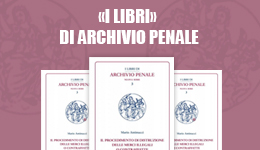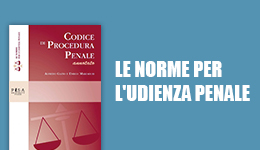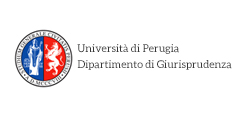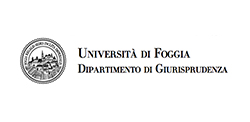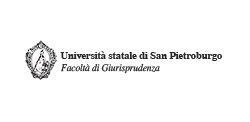Gli equilibrismi del nuovo 434 bis c.p. fra reato che non c’è, reato che già c’è e pena che c’è sempre.
Archivio Penale
© dell'autore 2022
Ricevuto: 21 November 2022
| Accettato: 29 November 2022
| Pubblicato: 30 November 2022
L’intero articolo è disponibile
Riassunto
L’improprio ricorso alla decretazione d’urgenza, la duplicazione di tipicità preesistenti, la costruzione di un’offesa inesistente, il ricorso ad una tecnica normativa tautologica e contorta, la palese sproporzione fra disvalore del fatto e le pene previste, rendono il reato di raduno pericoloso un campionario dei vizi e dei limiti della legislazione penale più recente: un caso di “analfabetismo legislativo”, com’è stato definito, che
minaccia diritti costituzionali e garanzie fondamentali dell’individuo.
Il meccanismo sanzionatorio su cui è costruito il 434 bis oscilla infatti pericolosamente, fra il polo (della limitazione) del diritto e quello (della previsione) del delitto, in ragione di una tipicità scomposta che mette insieme spazi di libertà garantiti dalla Costituzione con condotte (già) descritte e sanzionate da reati preesistenti.
Questo reato senza offesa – o comunque dall’offesa inafferrabile – è peraltro corredato di un arsenale di misure sanzionatorie procedimentali, che spaziano dall’arresto in flagranza alla custodia cautelare, dalle misure di prevenzione alla confisca. Se a ciò aggiungiamo il possibile ricorso alle intercettazioni telefoniche, è chiaro che l’art. 434 bis c.p. raccorda il panpenalismo d’estrazione populista a quel regime di sorveglianza e di prevenzione, proprio del Penale di Polizia.
In tal senso sembra assistersi più che ad una svolta autoritaria, alla stabilizzazione delle misure di contenimento e di controllo sociale maturate nell’emergenza Covid: dal divieto di assembramento al reato di raduno pericoloso, è stato un attimo.
In un contesto storico che ha smarrito la relazione fra responsabilità personale e risposta sanzionatoria, maturano gli equilibrismi del nuovo 434 bis c.p. che – sospeso fra il reato che non c’ è e il reato che già c’è – approda ad una pena che c’è sempre, anche in assenza di processo.
Balancing the new Article 434 bis criminal code between offence that does not exist, offence that already exists and penalty that is always there. Technical evidence of crime without offence and punishment in the absence of crime
The improper use of emergency legislation, the duplication of already existing crimes, the construction of an offense that does not exist, the use of a tautological regulatory technique, the clear disproportion between the negative value of the fact and the penalties envisaged, make the 434 bis criminal code a sampling of the vices and limits of the most recent Italian criminal legislation: a case of "legislative illiteracy", as it has been defined, which threatens constitutional rights and fundamental guarantees.
The sanctioning mechanism on which the 434 bis is built oscillates dangerously, between the pole (of the limitation) of the law and that (of the prediction) of the crime, due to a poorly constructed crime that brings together spaces of freedom guaranteed by the Constitution with (already) described and sanctioned by already existing crimes.
This crime without offense – or in any case with an elusive offense – is also accompanied by an arsenal of procedural sanctions, ranging from immediate arrest to pre-trial detention, from preventive measures to confiscation.
If we add to this the possible use of wiretapping, it is clear that Article 434 bis of the Criminal Code it connects populist pan-criminalism to that regime of surveillance and prevention, proper to the Criminal Police.
In this sense, we seem to be witnessing more than an authoritarian turnaround, the stabilization of the containment and social control measures developed in the Covid emergency: from the ban on gatherings to the crime of dangerous gatherings, it was a moment.
In a historical context that has lost the relationship between personal responsibility and sanctioning response, the acrobatics of the new 434 bis c.p. which – suspended between the crime that does not exist and the
crime that already exists – leads to a punishment that always exists, even without procedural guarantees.
Percorso di valutazione
Peer reviewed. Certificazione della qualità


